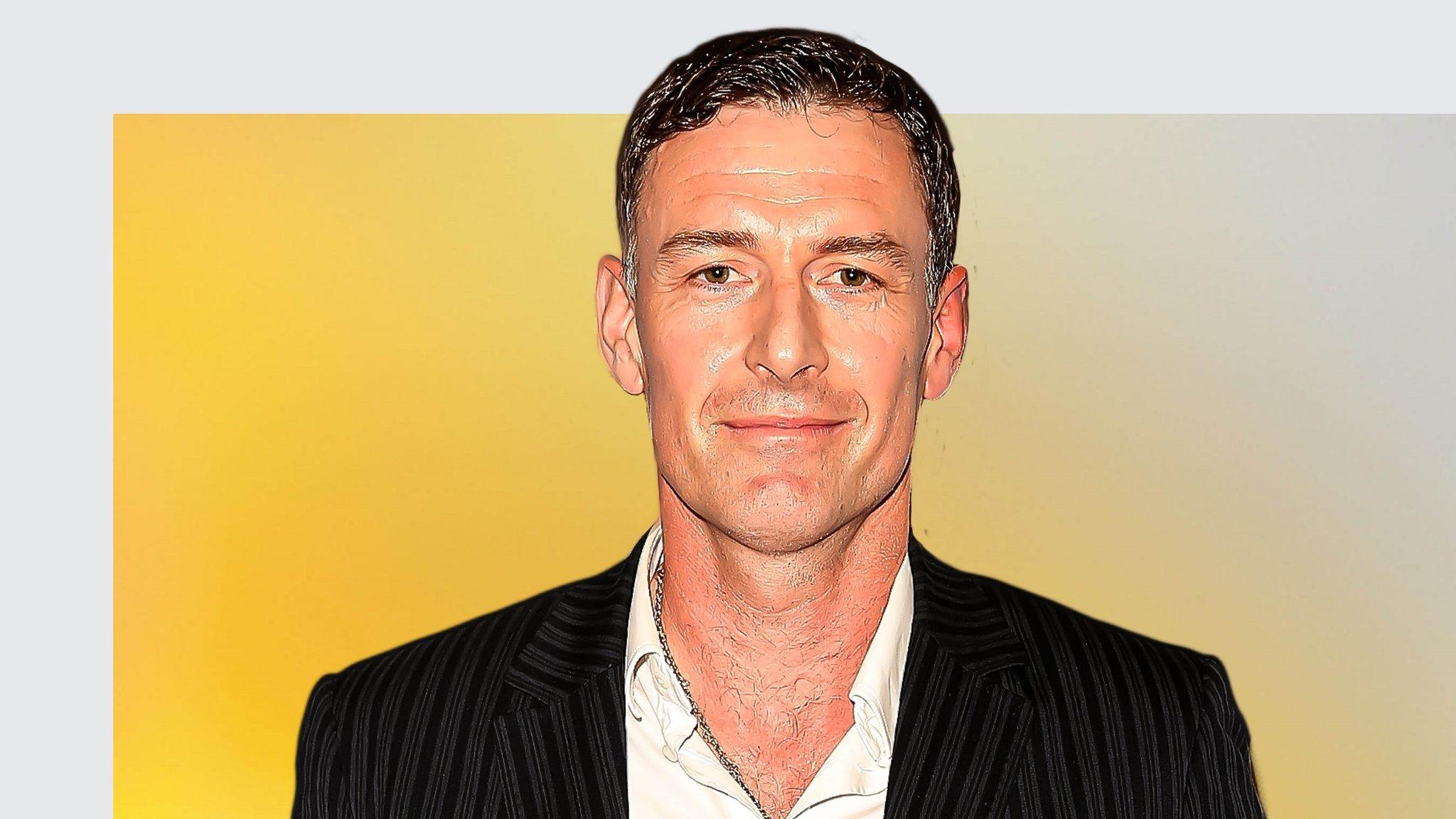World Cup 2022: Inside the ‘secret club’ of Iranian anti-government football fans
- Published
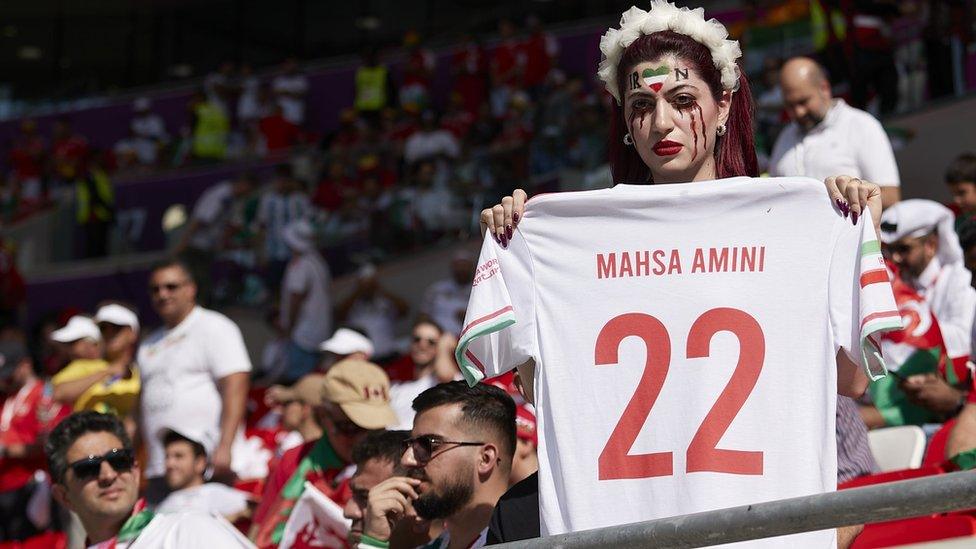
Iranian football fans are using the World Cup to continue their anti-government protest on the global stage
Many Iranians are boycotting the World Cup as they feel the team has not done enough to support the protest movement or criticise a regime which has killed hundreds of people. But a group of expat fans are trying to keep the protest flame alive inside Qatar's stadiums.
"I'm happy I'm here and that I'm doing this because I could see the fear in their eyes," says Tara, a young Iranian woman and football enthusiast.
She tells me the World Cup stadiums are heavy with government supporters for Iran's matches.
Tara is not her real name. Everyone I spoke to would only agree to an interview if they could keep their identities secret.
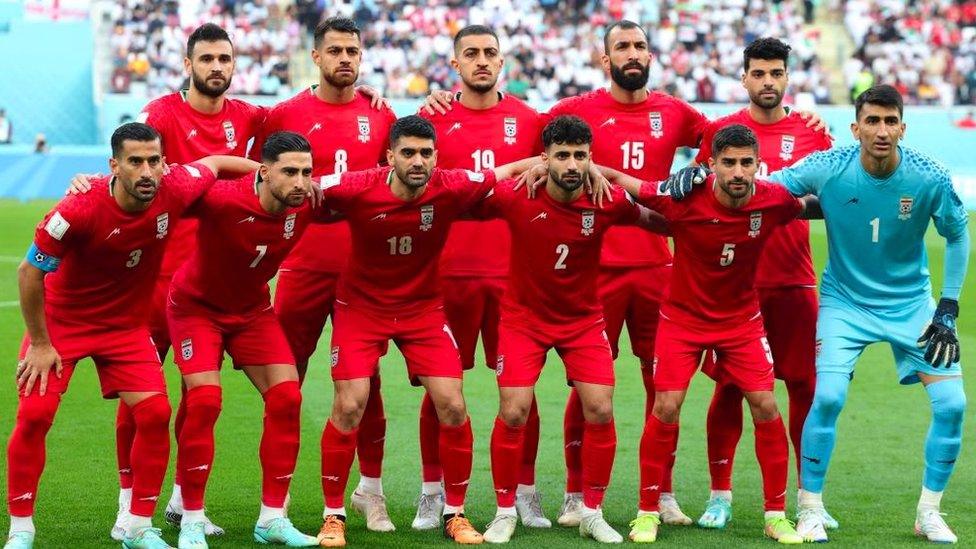
The Iranian football team used to unite fans of all political persuasions but is now a source of division
Amir travelled to Doha with his partner Rana.
"I thought this is what the government wants, for us not to come here so they could only have their own people [in the stadiums]," he says.
"This was supposed to be our honeymoon," says Rana.
But attending the matches in Doha has brought up conflicting emotions for her.
"I literally feel like I'm in mourning. My brothers and sisters have died. Even though I'm excited to be here and I'm enjoying the game, I'm not happy," she says.
'They turned the team against us'
Iran has been convulsed by anti-government protests since September when a young 22-year-old woman called Mahsa Amini died in police custody.
People are torn over whether the Iranian football team is with the protesters or the government.
The football team - nicknamed Team Melli, meaning national team - met President Ebrahim Raisi just before they travelled to Doha.
Photos of the meeting spread across social media platforms leading many opponents of the Islamic Republic to criticise the team and call for a boycott.
"Team Melli was for the people. The people who had no voice," says Tara. "Team Melli was the only thing that would unite us… and they turned Team Melli against us."
Everyone was on edge at the start of the first match.
"I wanted Iran to win but I also didn't feel right," says Rana.
But seeing people wearing t-shirts and wearing nail polish that reads 'women, life, freedom' in both Persian and English gave the protesters a boost.
"It was like a secret but not so secret club," says Rana. "We cheered each other on."
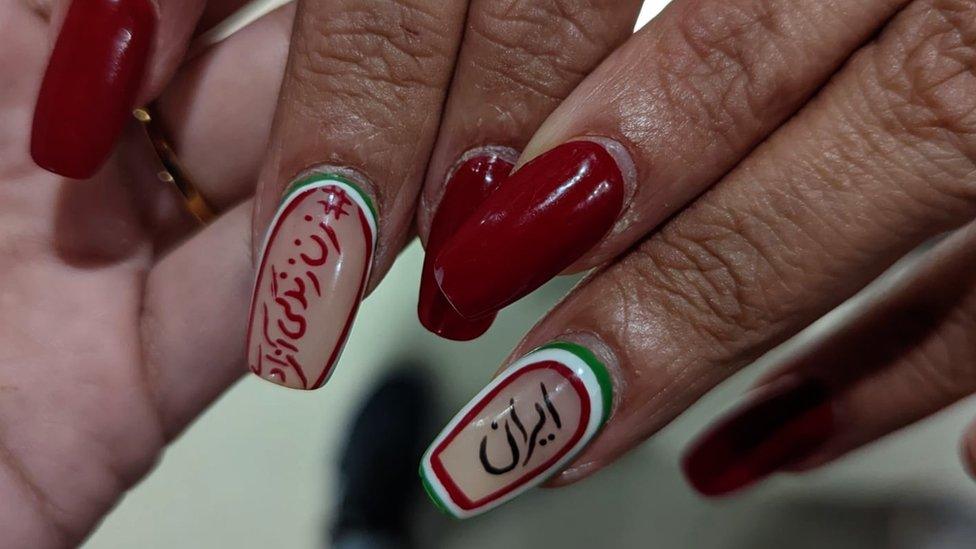
Iranian female football fans are using their nail polish which reads ‘women, life, freedom’ in Persian to keep the protest going.
The Iranian football team stayed silent during the national anthem at the first match but anti-government football fans made their voices heard.
They chanted "Ali Karimi" at the eighth and 88th minute of the match, a reference to the former footballer who wore the number 8 shirt and who is one of the most outspoken critics of the republic.
"There were people booing the national anthem," says Rana. "There were people who didn't applaud when the names of the players were called out."
Tension in the crowd
But the atmosphere was very different for Iran's second match.
The three managed to sneak in some protest material despite the rigorous security checks.
"It was so scary," says Tara. "You feel under threat."
Rana, Tara and Amir tell me they felt there were more government supporters at this match.
"As soon as we started chanting, the next row would start saying 'Iranians with honour, Iranians with pride'," says Tara. "That's one of the chants they used to silence us."
They tell me they saw some people inside the stadium gesture to security and ask them to remove protest material from some fans.
"They fear every single person who is standing for 'women, life, freedom'… because as soon as they hear that chant, they start getting so tense," says Tara.
I ask them how they felt when Iran scored its first goal against Wales.
"We didn't cheer a lot. My three friends and I had a group hug and then we cried," says Tara.
'Not safe'
Qatar has had good diplomatic relations with Iran for years. In 2017, Iran was one of the few regional countries that supported Qatar when Saudi Arabia and the United Arab Emirates (UAE) led a blockade against the Gulf state.
Iranian fans who oppose the government tell me they don't feel safe expressing their opinions here, precisely due to the close ties between the two countries.
"I don't feel safe here," says Tara. "You feel like a branch of the Islamic Republic is here to harass you."
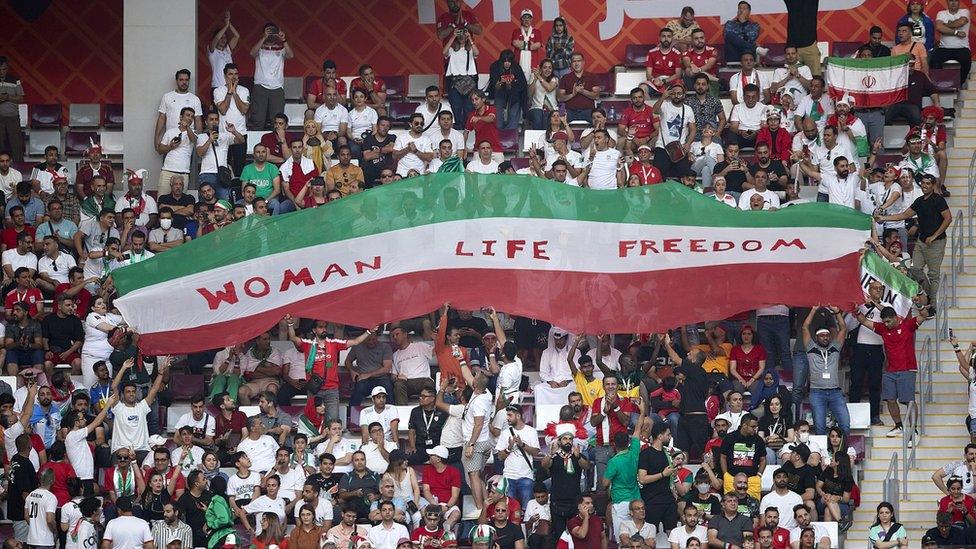
A protest banner in the colours of the Iranian flag with the words 'woman, life, freedom' was unfurled at the first match
Despite the risks, Tara, Rana and Amir will still attend the third game on Tuesday. To them, being here is a duty.
"I heard that some journalists were denied visas to come here so that makes us individuals a lot more important," Rana says.
"We are the journalists now," says Tara.
- Attribution
- Published1 December 2022
